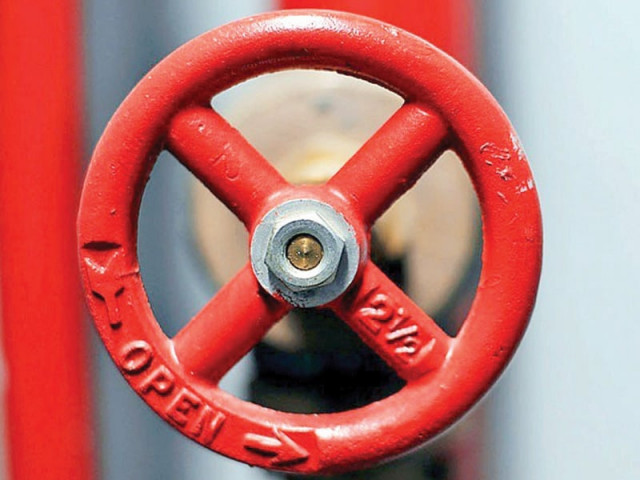Oil and gas installations: Explosives dept to deal with safety issues
Cabinet Division sidelines Oil and Gas Regulatory Authority.

A row between Oil and Gas Regulatory Authority (Ogra) and explosives department of the Ministry of Industries and Production over regulating safety issues of oil and gas installations has ended after the intervention of the Cabinet Division.
A committee, formed by the Cabinet Division and headed by the industries secretary, has decided that the explosives department is the only entity empowered to ensure safety of liquefied petroleum gas (LPG), compressed natural gas (CNG), liquefied natural gas (LNG) and oil installations by appointing third-party inspectors. On the other hand, Ogra is mainly concerned with pricing, marketing, tariff, duties and taxes, supply of CNG, LPG and LNG.
Earlier, Ogra was dealing with safety issues and had allegedly appointed its favourite third party inspectors to check CNG and LPG installations.
The controversy between Ogra and explosives department erupted when the latter started directing LPG marketing companies to obtain its licence for gas tankers, and storage and refueling plants. The department accused Ogra of interfering in its affairs by forcing the LPG marketing companies to obtain the authority’s licences.
The LPG marketing companies also alleged that Ogra’s move to issue separate licences for gas tankers was unfair as the authority’s rules did not clearly state that it could issue such licences. On its part, the explosives department claimed that it has powers to regulate safety matters of marketing companies.
Talking to The Express Tribune, Explosives Department Chief Inspector Haroon Rehman said “we had approached the Cabinet Division over the issue which formed a committee under the chairmanship of industries secretary.”
After holding a series of meetings attended also by Ogra officials, Rehman said, the committee came to the conclusion that the explosives department has the authority to deal with safety issues related to oil installations and “we have also written letters to those companies, which were already working and hired by Ogra, to participate as third party inspectors.”
A letter written by the Ministry of Industries to the Cabinet Division says that after detailed discussions in meetings and examination of relevant rules and regulations, the competent authority (industries secretary) has decided that the explosives department is responsible for safety of the human lives and properties at large under the Petroleum Act 1934 and Explosives Act 1884.
According to Sections 5 and 6 of Explosives Act 1884 and Sections 4 and 5 of Petroleum Act 1934 and rules framed under, the Department of Explosives is empowered to grant approval of design, specification standards, import and manufacturing and manners of installation of all sort of compressed/liquefied gas containers (cylinders, vessels), petroleum storage tanks, compressors, dispensers, piping, fittings, allied equipment and all kind of safety devices.
According to Section 7 of Explosives Act 1884 and Section 26 of Petroleum Act 1934, the Department of Explosives is an entity empowered to appoint third party inspectors to enter for inspection, certification and verification of CNG stations, LPG plants, LPG automotive stations, petrol pumps, bulk petroleum oil and other petrochemicals depots, all sort of CNG, LPG, LNG and industrial gases carriers and containers (cylinders, vessels) etc.
Published in The Express Tribune, August 3rd, 2011.


















COMMENTS
Comments are moderated and generally will be posted if they are on-topic and not abusive.
For more information, please see our Comments FAQ